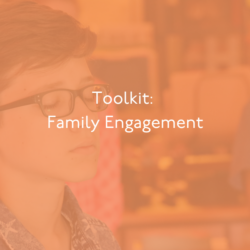Your children are learning invaluable social emotional skills at school, but how can we continue this growth at home? Many parents and caregivers have already started fostering these skills at home, but with more awareness and resources, social emotional learning can easily become a daily practice.
Here are 7 ways to help your child develop core social emotional skills outside the classroom.
Adopt the Growth Mindset
Encourage your child to embrace their mistakes; this helps them to adopt a growth mindset. This mindset really challenges us to look at our failures as an opportunity to evolve. Growth mindset is linked to happiness and achievement and it allows us to build resilience to obstacles, learn from errors, think critically, and welcome new experiences with a positive outlook.
When your child experiences a setback, acknowledge the effort that was made. If your child gets a bad grade, forgets to do their chores, or has a challenging day at school, help your child focus on what can be learned from the situation, rather than the failure itself. This helps children to develop strong traits such as perseverance, optimism, and perspective.
When your child makes a mistake, try using these sentence frames to spark a discussion: “I admire the way you ____”, or “You tried really hard on that.”
Prioritize Play!
Play has many benefits including, improved self-advocacy, leadership, and decision-making skills. Encouraging time for physical play is not only good for your child’s cognitive, physical and social emotional development, but it provides you with an opportunity to fully engage with your child as well.
Play helps children form deeper connections with their playmates and fosters creativity and self-expression. Implementing play around the home can be easy: make a game out of daily chores or evening meal prep. Also, encourage your kids to participate in self-directed play. Travel to the park, go outside, play board games, schedule time for free-play instead of organized sports, schedule play dates with other children. If you’re having trouble finding activities that fit your child’s needs, do a quick Google search for ways to encourage imaginative play!
No-Screen Time
Designate time for you and your child to disconnect from all smart devices. Our smartphones create a barrier that prevents us from authentically connecting with the world around us by constantly capturing our attention and overloading us with information. Not only is regularly disconnecting from smart devices good for your overall health, but it will help your child develop stronger social skills as well.
Develop a “no screen time” policy that is realistic and fits your schedule. Disconnecting can be difficult, so try tactics that are both easy and simple. Find moments for mindfulness regularly, check-out books from your local library, read magazines, get creative and experiment with arts and crafts, cook dinner together, or simply disconnect the Wi-Fi temporarily.
Recognize Emotions
Encourage your child to regularly identify their emotions. Don’t just ask how they’re feeling, ask them why they’re feeling a particular way. Helping children to regularly identify their feelings makes it easier for them to effectively practice self-regulation. Actively practicing self-regulation is what allows us to adopt more healthy, and appropriate, socially tolerable responses to our emotions.
So, when your child is angry, ask them why. This will cause your child to pause and reflect on their difficult emotion and then identify appropriate responses to that emotion. Don’t forget to ask about positive emotions as well. When your child is buzzing with excitement or energy, ask them why they’re excited and help them figure out the appropriate ways to express these emotions. Some ways you can encourage your child to identify their emotions is through incorporating mood meters, journaling, and regular conversation.
Practice Gratitude
Find things to be grateful for. Regularly practicing gratitude is good for your child’s mental, emotional, and physical wellbeing. Aside from being linked to many positive health benefits, gratitude helps us to gain a more positive outlook on life and also encourages empathy.
Focusing less on the negatives helps your child recover from adversities and setbacks, which helps to decrease stress and anxiety. Empathy allows for your child to form deeper connections with their peers, which leads to positive social behaviors.
A great way to encourage gratitude at home is by starting a gratitude journal, or by making a daily practice of identifying what you’re grateful for together before bed, or during dinner.
Talk!
Engaging in regular conversations encourages active listening. Active listening is an essential communication skill that your child will carry into adulthood, and can be defined as a structured form of listening and responding that focuses attention on the speaker (Concorde Career College, 2018).
Active listening is essential to your child’s executive functioning, and also helps your child to build deeper connections with their loved ones and peers! When you and your child are able to convene for the evening, make a habit out of discussing the highlight of your day! Take turns acknowledging each other’s thoughts, and make sure you are able to provide your full attention.
Lead by Example
One of the best ways to help foster these important skills at home is through leading by example. Positive behavior cannot simply be taught in textbooks – it’s important for your child to see you modeling these behaviors. When you’re feeling something, also discuss the why of your own emotions, practice gratitude in your everyday life, challenge yourself to actively listening during every conversation, share stress management techniques and help your child develop their own. Not only does this benefit your social emotional wellbeing and encourage positive behavior in your child, but it helps to form a deeper connection at home as well.
Learn more about social emotional learning at home.
Sign up for Move This World’s newsletter to stay up to date on social emotional learning.
Enter your email below!










